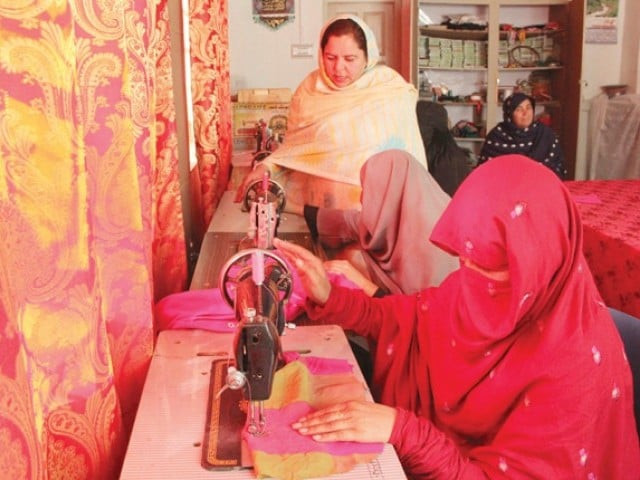‘Will they really solve our problems?’
Domestic workers’ recognition was the topic of discussion at a five-star hotel

PHOTO: FAZAL KHALIQ/EXPRESS
The conversation in undertone was going on in the Ambassador-I Hall of the five-star hotel, where Home Net, a non-governmental organisation working for labour rights, had organised a consultation for recognition of domestic workers as workers in the law book of the province on Tuesday.
Plight of domestic workers
As the programme began with the introductory session, a group of women who worked as 'maasis' (domestic help) started narrating their plight. A middle-aged woman, in her trembling voice, lamented that for the whole of her life she worked as a maid in houses, and yet she was working in her old age.

She compared herself to the sun and said that she started her day with the sun but did not end with it. Her day lasted till midnight, leaving behind only a couple of hours to rest. "To say the least, can we be recognised as workers?" she questioned in anticipation.
It was then the speaker, Ume Laila Azhar, the executive director of the NGO, explained to her that this was the reason for which they had gathered here. "It is the first consultative meeting on drafting a policy for domestic workers to get them their due rights and acknowledge them as workers."
Informal women workers : Legal rights demanded
According to Azhar's presentation, there are approximately 8.5 million domestic workers in the country. "Eighty per cent of these are women of all ages," she said. "Around three-fourth of the domestic workers earn around Rs1,500 a month on average."
This is not the case of Pakistan alone, she added. This informal sector, deprived of its rights, is everywhere in the world.
Speaking from her experience of the arduous process of making laws, Azhar admitted there was a long way to go. "To begin with, the least that could be done was to organise domestic workers in groups, unions, federations, etcetera and educate them about their rights."
Sharing a story of this kind, she said that a similar union, though unregistered, was operating in Islamabad. The domestic workers, with the help of their union, were able to raise their voice against injustices and the inhumane jobs they were forced into.
Consultation meeting: ‘Violence against domestic workers has increased’
"Very good news was received from them that domestic workers were able to negotiate with their employers over wages and job timings," she said. "Moreover, they get some politicians to agree to their terms in return for their votes."
The Home Net director said that the Punjab government had drafted a bill for domestic workers and the matter was in the pipeline to become a law. "Such a policy was also envisaged for Sindh and this meeting is the first step towards it," she said.
Based on tripartite principle, the meeting attracted attention from employee, employer and the government. The director of labour department, Dr Ghulam Mustafa Suhag, represented the Sindh government and pledged that the matter will be given priority.
Concluding the consultation, Azhar explained the future course of action to the audience. In the next phases, a policy with the help of the labour department will be drafted and sent to the government. As she detailed some points to be followed, a woman from the domestic workers group raised her hand to ask something. Relief was her only concern. "Will our rights be given to us? Please tell us," she said.
Published in The Express Tribune, November 25th, 2015.



















COMMENTS
Comments are moderated and generally will be posted if they are on-topic and not abusive.
For more information, please see our Comments FAQ